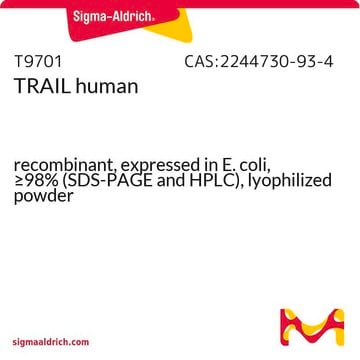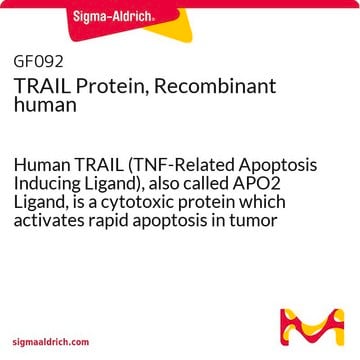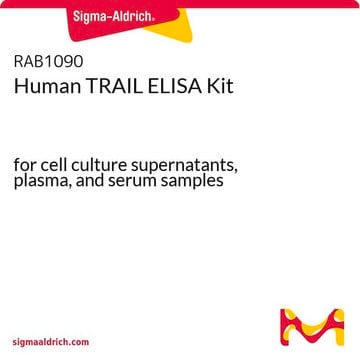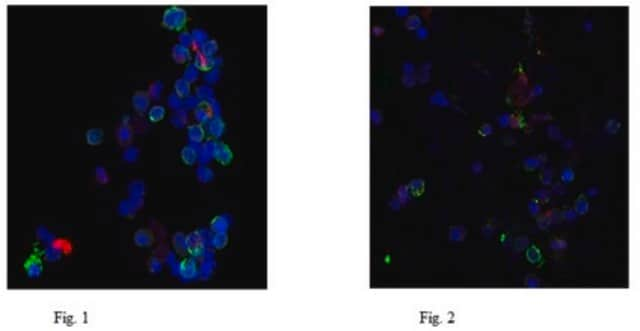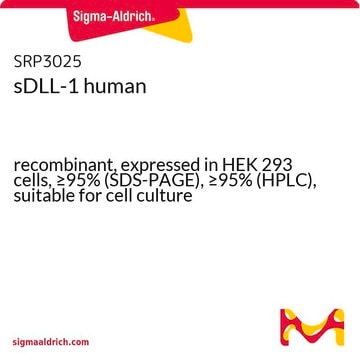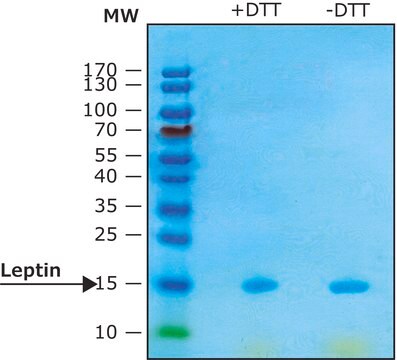T5694
TRAIL human
recombinant, expressed in NSO cells, >97% (SDS-PAGE), lyophilized powder
Sinónimos:
Apo2 Ligand, TL2
About This Item
Productos recomendados
biological source
human
Quality Level
recombinant
expressed in NSO cells
description
N-terminal 6X histidine-tagged extracellular domain
assay
>97% (SDS-PAGE)
form
lyophilized powder
mol wt
24 kDa by SDS-PAGE
predicted mol wt ~21 kDa
technique(s)
cell culture | mammalian: suitable
impurities
endotoxin, tested
UniProt accession no.
storage temp.
−20°C
Gene Information
human ... TNFSF10(8743)
¿Está buscando productos similares? Visita Guía de comparación de productos
Application
Biochem/physiol Actions
Physical form
Analysis Note
Storage Class
11 - Combustible Solids
wgk_germany
WGK 3
flash_point_f
Not applicable
flash_point_c
Not applicable
Certificados de análisis (COA)
Busque Certificados de análisis (COA) introduciendo el número de lote del producto. Los números de lote se encuentran en la etiqueta del producto después de las palabras «Lot» o «Batch»
¿Ya tiene este producto?
Encuentre la documentación para los productos que ha comprado recientemente en la Biblioteca de documentos.
Nuestro equipo de científicos tiene experiencia en todas las áreas de investigación: Ciencias de la vida, Ciencia de los materiales, Síntesis química, Cromatografía, Analítica y muchas otras.
Póngase en contacto con el Servicio técnico